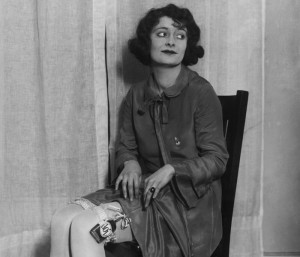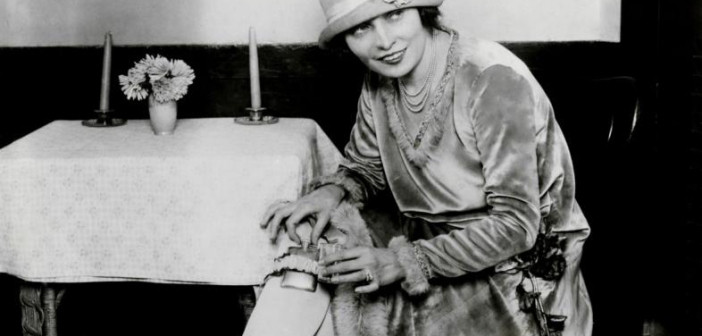Prohibition means so much more than its initial reference as “an action of restriction or forbiddance, making it illegal and immoral to partake in.” Violence, crime, corruption, incarceration, poverty, broken families, stigma, disease, death; all directly derived from it, yet these well known costs of prohibition are seldom used as its descriptives. We’ve blindly stayed the course for the past one hundred years without questioning motives or relying on substantive statistics and science proving its lack of efficacy. This blatant failure has cost us not only in the trillions of dollars spent raging a senseless war on drugs which has wrongly been classified as a public safety matter rather than a public health one, but in lives and futures lost.
***********
Sitting around a rickety chrome table on equally unstable vinyl-clad chairs in a dank wallpapered kitchen was the set for conversation and the story telling of the misbegotten adventures of elder family members when I was a child. No doubt, for a girl as young as I was at the time, these stories were not meant for my ears, let alone my overactive imagination.
A mental reenactment would play out as if I were right there experiencing it for myself in the moments the stories were told, and for me at least, it brought the otherwise mundane existence of my elder to life and gave humanness to their seemingly non-corruptible social status.
One such story reflects well on an issue I find myself intrenched in today; that of prohibition.
As the story went, two young ladies of very respectable families found themselves smugglers of liquor during the short era of its prohibition in Ontario. More specifically between the cities of Sault Ste. Marie, Ontario which was a liquor distribution hub, making it optimal for the hijacking of booze and redirecting it to Soo, Michigan, which was a totally dry state at the time. From the glint in the eye of the storyteller along with the upturned corner of her lip, it became obvious that their actions were considered to be more of an adventure than a criminal act with serious repercussions if caught.
 “We’d slip mickeys into our garters and the tops of our stockings and cross over the river by ferry. No one the wiser.” The ‘tsk tsks’ of those accompanying me at the table brought on a stern defence. “Those who were going to drink were going to drink regardless of its legality.” I heard. “Better the good stuff than the gut rot brewed in basements and barns. Besides, it wasn’t as though we were doing it big time like the rum runners boating it up and down the Michigan side.”
“We’d slip mickeys into our garters and the tops of our stockings and cross over the river by ferry. No one the wiser.” The ‘tsk tsks’ of those accompanying me at the table brought on a stern defence. “Those who were going to drink were going to drink regardless of its legality.” I heard. “Better the good stuff than the gut rot brewed in basements and barns. Besides, it wasn’t as though we were doing it big time like the rum runners boating it up and down the Michigan side.”
The reasoning seemed plausible to my young and inexperienced mind at the time. However, setting aside the obvious fact that of course ‘wherever there is a will there is a way’, I had to ask myself “why?” Not why did these ladies decided to bootleg, but why was alcohol prohibited in the first place?
Coles notes on what I discovered is that prohibition of alcohol, enacted as The Ontario Temperance Act in 1916 during the first world war, was supposed to only be a wartime measure. Modelled after the 1914 Harrison Narcotics Act in the United States, it was said to be for the purpose of conserving foodstuffs and freeing men employed by distilleries and breweries so they could make better use of their time for military purposes. The explanation seemed to have some sensical merit to it, I thought, as I researched the topic further only to note that long prior to war time there was considerable support on both sides of the border for alcohol prohibition from various women’s, religious and other groups who felt they knew how best someone should conduct themselves.
Although good meaning and well intended in their objectives perhaps, in retrospect I have to ask, “what truly came from enacting this measure?” My feigned naivety questions “did we conserve enough foodstuffs (grains) to feed the whole of the British, French and Italian armies as they claimed we could, and if we did conserve that grain, did we actually bake the bread and feed it to them? What of the men who were to loose their jobs at the distilleries and breweries? Did they go off to war?”
Upon further reading my answer was provided without much, if any, surprise. The act was written in such a way that while it became illegal to possess alcohol for the purpose of personal consumption or sale, it failed to mention anything making it illegal to manufacture or distribute alcohol in Ontario. Hmmm, could it be another situation of ‘follow the money’, as some might suspect? With the distilleries and breweries left running, Ontario’s alcohol manufacturing giants, Seagram’s, Hiram Walker-Gooderham Worts and Corby’s made more than just a name for themselves while we created the perfect opportunity for everything I earlier described prohibition to be to come alive.
I can still call up the vision of these two ladies dressed in their beaded – roaring twenties style – dresses; jewelled barrettes holding feather plums that jutted from their perfectly coiffed hairdos; red lips emphasizing a pouty expression on their pasty white faces. What excitement and rush they must have felt at having gotten away with something that could have just as easily seen them carelessly shot dead and left on the side of the road in exchange for their cargo. Or, perhaps a fate less permanent; caught and jailed. Or a fate more scaring; shamed and shunned by their families who put social position before flesh and blood.
My views, position and opinions on prohibition have been enlightened since this childhood, kitchen table tale was told. The image of these two beautiful relatives playing out a terrifying, yet somehow tantalizing, game of Russian roulette with their futures still brings a sense of humanness to their demure and otherwise spotless reputation making it hard for me to think of them as the criminals the law might well have deemed them to be.
My understanding of the affects of prohibition broadened much further than I ever desired it to as I cared for my daughter while she passed away as a result of her use of prohibited drugs. Their ‘prohibitiveness’ caused her to believe she was not worthy and did not deserve the humane treatment we would offer any other ill person in need of social, health and compassionate care from either government, community or family. Even after her death the costs of prohibition were inherited by those who knew and loved her as they carry on her memory. All because she died being addicted to prohibited drugs.
My understanding is that anything prohibited also makes that same thing a commodity. Put those who are impoverished, whether it be socially (as was the case of my elders), financially, physically or mentally, or a combination of any of these, with those who are keen to take advantage of a lucrative situation and there is only one result can you logically expect. It results in the very situation and circumstances you believed you were avoiding by prohibiting that thing in the first place.
I see prohibition as being responsible for driving everything into the night; into the darkness. It segregates, isolates and it stigmatizes. It preys on the unsuspecting, the knowing, as well as, the willing without distinction of race, class or creed. By its very nature it has the capacity to consume and devour anyone and everyone into its bowels and digest what was once beautiful into unrecognizable waste.
If we refuse to take the lesson from our history, then what of the staggering epidemiology and the collective science gathered over the past 100 years. It provides us with the evidence that the legalizing and regulating of prohibited substances not only accomplishes a significant reduction in crime and all that goes with it, but there was also a calculable reduction in the cost of fighting it.
While most tend only to calculate prohibition’s cost monetarily, those who have been personally affected can assign a true measure of the emotional, societal and physical expenditure due to it. Sadly, for some of us, there will never be a quantifier that equates to the loss of any life because of it.
My goal and my belief is that in my lifetime, prohibition or better named ‘The War on Drugs’, will end. What are now considered illegal drugs will be legalized, regulated and administered in a safe, supervised manner with the model of harm reduction for all substance users at the forefront of all that we do. I yearn for a time when all will treat drug addiciton as the disease that science has proven it to be and that monies, now being used in the continuation of the unsuccessful prohibition theory, will be redirected to covering the health and social care costs for this population whom we have marginalized.
I am only one in an ocean of those who morn the unnecessary loss of someone I loved so much. In your own community, death due to prohibition continues to occur commonly and mostly without care, concern or thought of how we can, or why we should, end this epidemic.
Some of you, municipal, provincial and federal politicians included, are still plugging away in the same logic that failed miserably for the past 100 years. You steadfastly and unquestioningly continue, hoping that the same actions will someday bring a different result. Shame on you.
It’s past time, but not too late, for you to reconsider your reasons, as well as, your responsibility. It’s time to rethink your own opinions and your stance on Prohibition. It’s time to form an educated opinion that is hopefully based on the facts, epidemiology and science; rather than the unsubstantiated and unsupportive slogan, ‘just say no’. As for those misguiding laws enacted for financial, social and/or political gain- that’s a whole other topic.
*****
*Editor’s Note: On August 1st, 2014, the Northern Hoot had the privilege of publishing Jacquilynne Gray: Lost in Plain View. The story was originally set for publication one year earlier but the author was unable to find any local or national publication that would carry the story. Locally- the story was just too ‘fraught with legal concerns’ and too controversial. It’s a small town. Nationally- well, it was a good story but Jac was just a dead addict from Northern Ontario. The Jacquilynne Gray story and the tremendous challenge in finding a publisher that would give her a voice was indeed the greatest inspiration for the establishment of the Northern Hoot.


